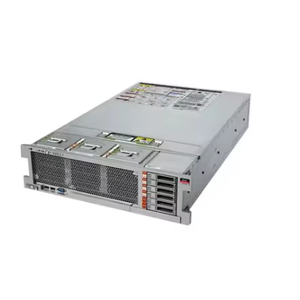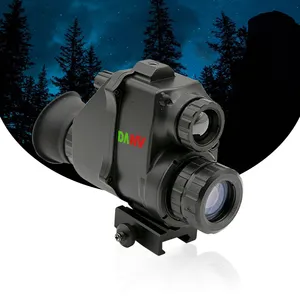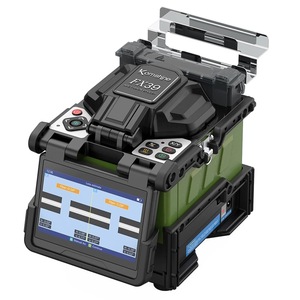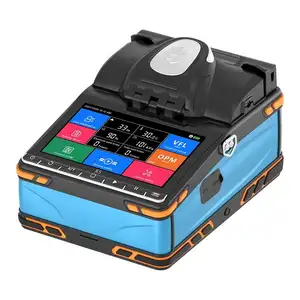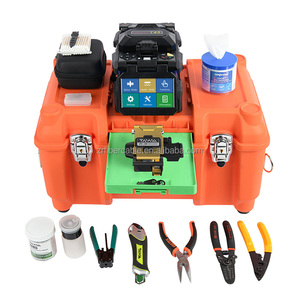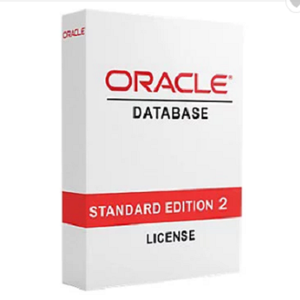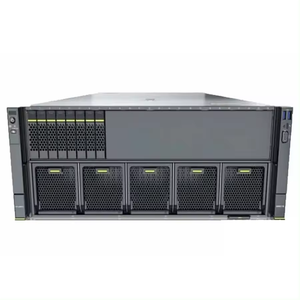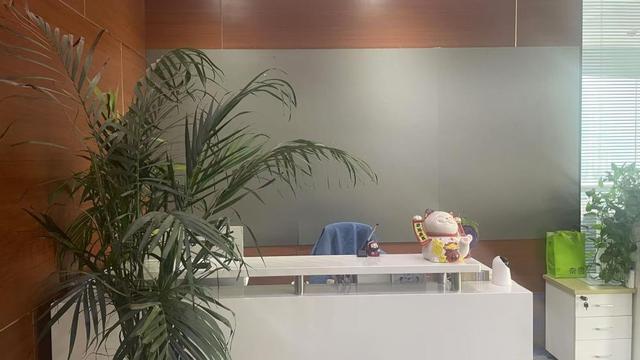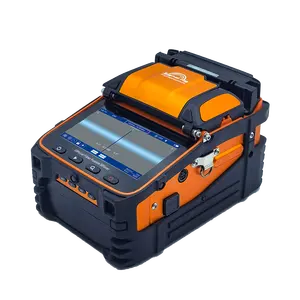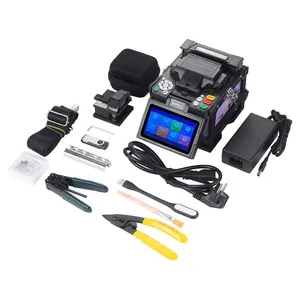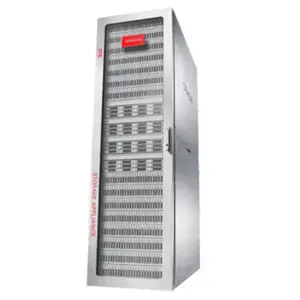Supplier Site Assignment In Oracle Fusion


















 CN
CN
















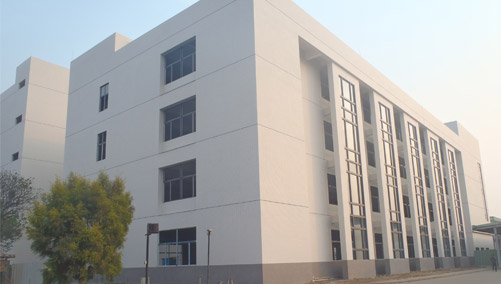

























About supplier site assignment in oracle fusion
Where to Find Oracle Fusion Equipment Suppliers?
China serves as a central hub for the manufacturing of equipment associated with optical fusion and server infrastructure, with key production clusters located in Beijing, Hangzhou, Shaanxi, Shanghai, and Shenzhen. These regions host specialized technology firms that produce fiber optic fusion splicers, thermal imaging systems, and enterprise-grade servers—products frequently indexed under "Oracle Fusion" due to keyword alignment, though not directly affiliated with Oracle Corporation’s software suite.
The industrial ecosystems in these cities support vertically integrated supply chains, enabling rapid prototyping and scalable production. Beijing and Shanghai emphasize enterprise IT hardware with robust R&D investment, while Hangzhou and Shenzhen specialize in telecommunications equipment, particularly fiber optic fusion splicing devices. Shaanxi has emerged as a center for dual-sensor night vision and thermal imaging systems branded under “Fusion” terminology. Proximity to component suppliers and logistics networks allows lead times averaging 15–25 days for standard orders, with export-ready packaging and documentation compliant with international shipping standards.
How to Choose Oracle Fusion Equipment Suppliers?
Selecting reliable suppliers requires rigorous evaluation across technical, operational, and transactional dimensions:
Technical Specialization & Product Validation
Confirm the supplier's core product category aligns with your requirement—whether fiber optic fusion splicers, server hardware, or thermal imaging systems. Review product specifications such as CPU configuration (e.g., 4-core), splicing accuracy (≤0.02dB typical loss), or night vision resolution. Request test reports or calibration certificates for precision instruments like AI-9 or FS-series fusion splicers.
Production and Customization Capacity
Assess customization capabilities including logo branding, color/material selection, packaging design, and firmware adjustments. Suppliers such as Shaanxi Ireeda Protective Technology Co., Ltd. and Shenzhen Datolink Technology Co., Ltd. explicitly offer multi-level customization. Verify minimum order quantities (MOQs), which range from 1 piece for high-value units to 2 pieces for bulk server deployments.
- Facility size and output capacity are indirect indicators of scalability
- In-house engineering teams enhance adaptability for OEM/ODM projects
- Digital response metrics (response time ≤2h) correlate with post-sale support efficiency
Transaction Reliability Indicators
Prioritize suppliers with documented on-time delivery rates exceeding 90%. Reorder rates above 30% suggest customer satisfaction. Use verifiable performance data: Hangzhou Huaxun Technology reports 100% on-time delivery and US $300,000+ annual online revenue, indicating strong fulfillment capability. Cross-reference claims with third-party assurance programs where available.
What Are the Leading Oracle Fusion Equipment Suppliers?
| Company Name | Location | Main Products | On-Time Delivery | Reorder Rate | Response Time | Online Revenue | Customization Options | Min. Order |
|---|---|---|---|---|---|---|---|---|
| Beijing Guangtian Runze Technology Co., Ltd. | Beijing, CN | FusionServer 2288H V6, 1288H V5, Enterprise Servers | 90% | 40% | ≤2h | US $20,000+ | Logo only | 1–2 units |
| Hangzhou Huaxun Technology Co., Ltd. | Hangzhou, CN | Fusion Splicers (ARC-FS, AI-9, FIBERVISION-FS) | 100% | <15% | ≤2h | US $300,000+ | No | 1 set/unit |
| Shaanxi Ireeda Protective Technology Co., Ltd. | Shaanxi, CN | Fusion Thermal Night Vision Monoculars & Binoculars | 96% | 36% | ≤2h | US $150,000+ | Color, material, size, logo, packaging, graphics | 1–5 pieces |
| Shanghai T&C Network Technologies Co., Ltd. | Shanghai, CN | Fiber Optic Splicers (AI-5, AI-8C, FX-37), FSM Models | 92% | 18% | ≤3h | US $150,000+ | No | 1 piece |
| Shenzhen Datolink Technology Co., Ltd. | Shenzhen, CN | Fusion Splicers (KL-500e, AUA-70F, AI-5) | 90% | 20% | ≤2h | US $40,000+ | Color, material, size, logo, packaging, graphics | 1 piece |
Performance Analysis
Beijing Guangtian Runze stands out for high reorder activity (40%), suggesting consistent buyer retention in the server hardware segment. Hangzhou Huaxun leads in punctuality (100% on-time delivery) and revenue volume, making it a preferred partner for time-sensitive procurement of fiber optic fusion splicers. Shaanxi Ireeda offers the broadest customization scope, critical for private-label defense or security applications. Shenzhen Datolink and Shanghai T&C provide competitive pricing starting at $295 for entry-level splicers, ideal for budget-conscious telecom contractors. All top-tier suppliers maintain response times under three hours, ensuring efficient communication cycles.
FAQs
Are these suppliers affiliated with Oracle Corporation?
No. The term “Oracle Fusion” in product listings refers to brand naming by manufacturers and does not indicate partnership with Oracle Corporation. These suppliers produce physical equipment—servers, splicers, thermal imagers—not Oracle’s enterprise software solutions.
What is the typical MOQ for fusion splicers or servers?
Minimum order quantities vary: most fusion splicers require 1 unit/set, while enterprise servers often have MOQs of 2 pieces. Some suppliers allow single-unit trials at slightly higher unit costs.
Do suppliers offer quality certifications?
Certifications are not explicitly listed in the dataset. Buyers should request ISO 9001, CE, or RoHS compliance documentation directly. For fiber optic equipment, verify adherence to IEC 61315 standards for splicer performance.
Can I request product samples before bulk ordering?
Yes. Most suppliers accommodate sample requests. Expect lead times of 7–15 days for sample preparation and additional 5–10 days for international air shipping. Sample costs may be partially offset upon full-order placement.
What are common payment and logistics terms?
Standard terms include T/T (bank transfer), with options for letter of credit (L/C) for large contracts. FOB terms are typical; buyers arrange final freight. Packaging is export-standard with shock detection labels for sensitive instruments.
